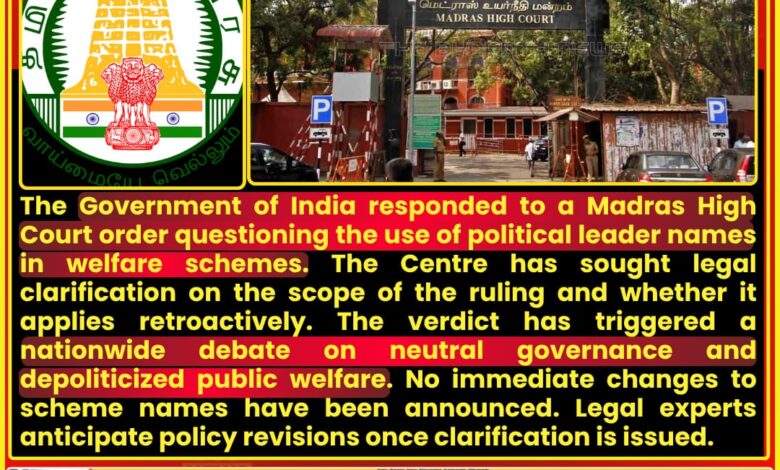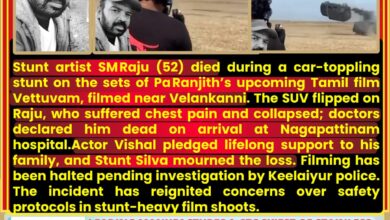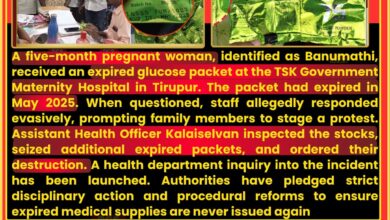
The Government of India has sought legal clarification following a recent ruling by the Madras High Court questioning the naming of public welfare schemes after political leaders or parties. The court’s judgment has prompted the central authorities to review current naming conventions and their compliance with constitutional principles.
Court Order Sparks National Policy Questions
The Madras High Court, in a ruling issued last week, observed that naming government schemes after political leaders or parties could amount to unfair promotion and politicization of taxpayer-funded programs. The bench emphasized the need for neutral and non-partisan names for centrally or state-sponsored schemes, citing constitutional morality and administrative neutrality.
The judgment also recommended setting up a naming committee to oversee titles of future welfare programs.
Centre Responds: Seeks Clarification
Officials from the Ministry of Law and Justice confirmed that the Union Government is analyzing the implications of the verdict. A formal clarification request has been sent to the court to determine whether the ruling would apply retrospectively, and whether it includes centrally-funded schemes implemented through states.
A senior official said:
“We respect the court’s observations but require clarification on jurisdictional applicability, especially with existing programs involving multiple administrative levels.”
Impact on Existing Flagship Schemes
Several prominent welfare schemes—such as the Pradhan Mantri Awas Yojana, Indira Awas Yojana, and Rajiv Gandhi Khel Abhiyan—may come under scrutiny depending on how the judgment is interpreted. Political analysts believe this could lead to a renaming exercise or introduction of neutral titles in future schemes.
States Also Affected
The ruling could affect state governments, particularly those where schemes are prominently named after local or national political icons. Legal experts say the ruling reinforces the idea that public welfare should remain apolitical and avoid reinforcing cult of personality narratives.
Some state leaders have welcomed the court’s direction, while others have raised concerns over the logistical and administrative challenges of renaming well-established programs.
Legal Experts Weigh In
Constitutional law experts noted that the judgment invokes the principles of equal treatment, secular governance, and accountability. While the court didn’t strike down any specific scheme name, it emphasized ethical governance.
Legal analyst Ritika Sharma commented:
“This is a progressive step toward de-politicizing welfare delivery, but implementing it uniformly across India will require careful legal coordination.”
No Immediate Changes Yet
As of now, no scheme names have been officially altered. The government is expected to wait for further judicial direction or possibly move an appeal or clarification petition. Public feedback, political consensus, and constitutional compliance will likely shape the next steps.
Conclusion
The Madras High Court’s ruling has ignited a broader debate on the intersection of governance and political branding. The Centre’s move to seek legal clarity shows its intent to comply with constitutional expectations while managing administrative continuity. Further developments are expected in the coming weeks, potentially reshaping how public welfare schemes are named in India.










